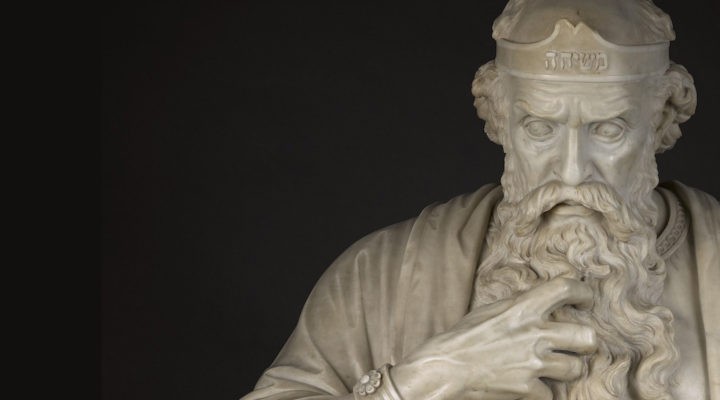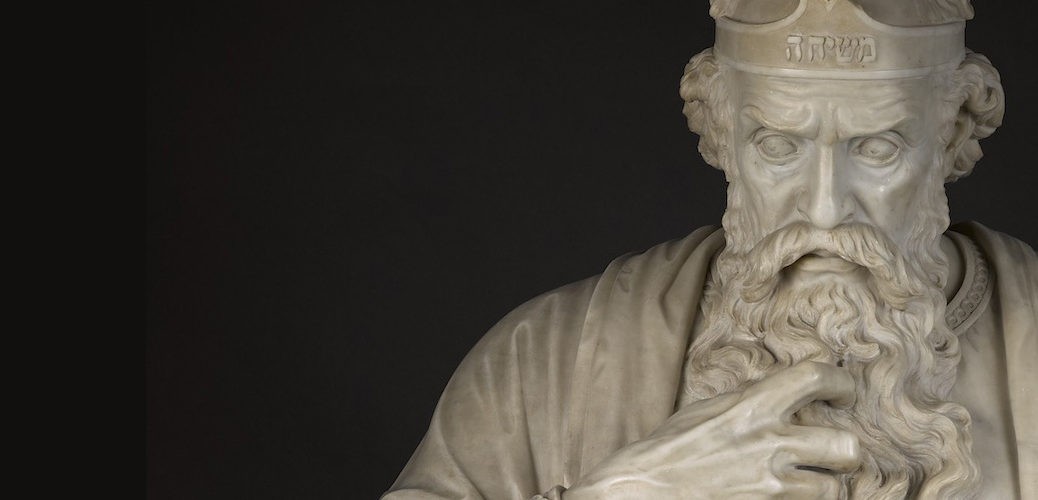The fall of ancient Israel began almost before it rose — when the people demanded of Samuel, “Give us a king to lead us.”
You can read the whole, sorry story in 1 Samuel 8. The aging prophet who had guided Israel was heartbroken by the ultimatum. Samuel’s dread was confirmed when the Lord told him, “Listen to all that the people are saying to you; it is not you they have rejected, but they have rejected me as their king. As they have done from the day I brought them up out of Egypt until this day, forsaking me and serving other gods, so they are doing to you.”
Samuel warned the people that a king would take the best of their sons and daughters, their herds and flocks, their fields and vineyards, and even make them slaves again. No matter: “We want a king over us. Then we will be like all the other nations.”
Samuel gave them Saul. The hesitant young man never really wanted the job in the first place, but later he held onto it with murderous and increasingly insane ferocity. With a few notable exceptions — David, Solomon, Josiah and Hezekiah among them — Israel’s (and Judah’s) monarchies went downhill from there. Too many kings were harsh, greedy and idolatrous, just as the Lord predicted. As always, God brought good out of bad; God was preparing humanity for a kingdom not of this world. But the cautionary lesson remains.
Old Testament Israel versus modern nation states
It’s almost always unwise to compare modern nation states to Old Testament Israel. Only Israel was chosen by God. All other nations that aspire to such a status are pretenders, and their theocratic arrogance usually leads to disaster.
“The Israelites of Samuel’s time didn’t lose their freedom to outside forces; … they gave it up willingly.”
Still, one parallel between ancient Israel and modern democracies is irresistible. The Israelites of Samuel’s time didn’t lose their freedom to outside forces, despite their constant conflict with invaders, other local tribes and each other. They gave it up willingly, even eagerly. They wanted someone visible to rule over them, to tell them what to think and do, to bring order into the chaos of pagan Canaan. A king would solve everything! Following an invisible God required too much faith.
Keeping a democracy functioning in a complex, ever-changing world also requires faith, albeit of a more secular sort: Faith in representative government. Faith in debate and compromise. Faith in elections. Faith that your fellow citizens will abide by a social contract that includes both liberty and law, rights and responsibilities.
It isn’t easy, particularly when millions of individuals and groups struggle over competing interests and aspirations.
No wonder democracy is rare (and fairly recent) in human history. Most people through the ages have lived under tribal and clan chiefs, kings and queens, emperors, despots, dictators and other practitioners of absolute or semi-absolute rule. Some nations have rule from above forced upon them or never have known anything else.
But others, not unlike the Israelites, embrace a king.
Life is hard. Day-to-day survival consumes most of our energy. Affairs of state are bewildering and frustrating. You can’t trust politicians. Why not let someone else make those decisions in return for security and simplistic answers to tough questions? Especially if your chosen leader can fight for you against “them” — whoever “them” may be in your particular society. The suspicious “other.” Those invading immigrants. That different religion. Those other races you can’t trust.
Analyzing Trumpism
Trumpism is an obvious expression of this phenomenon. The Republican Party has essentially traded its political and moral philosophy for a xenophobic, populist cult of personality that promises to “Make America Great Again.” In reality, the cult offers little, even to its core supporters, beyond a sense of superiority over the various “others” they fear and the mirage of a return to the good old days of simpleminded solutions to complex issues.
Meanwhile, the nation sinks into division, decline and political paralysis as the president charged with faithfully administering our democratic institutions systematically undermines them.
A global perspective
But Trumpism is far from the only instance of the populism-run-amok weakening democracies internationally. Here are a few examples, among many:
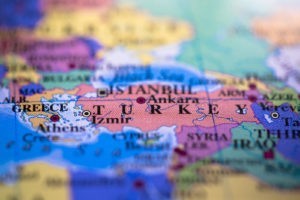
(Bigstockphoto)
Turkey, long the model for secular (if militarized) democracy in the Middle East, has become a hyper-nationalist, increasingly Islamist police state under populist President Recep Tayyip Erdogan. He has muzzled the press and crushed urban protests as he consolidates his rule. He used a disorganized military coup attempt against his government in 2016 as an opportunity to jail and terrorize thousands of opponents.
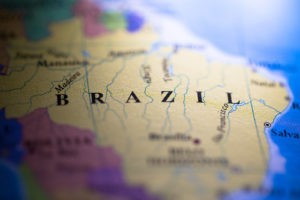
(Bigstockphoto)
Brazil, led by populist President Jair Bolsonaro, has slid into political and economic chaos. Bolsonaro took over in 2019, promising to clean up Brazil after years of misrule under corrupt leftist politicians, but things have gotten worse. He hurls insults at indigenous and non-white ethnic groups in Brazil’s multiethnic society, allows the destruction of the nation’s rainforests and continues to deny the threat of COVID-19, although Bolsonaro himself contracted it in July. Brazil now has the third-most COVID cases in the world, behind only India and the United States.
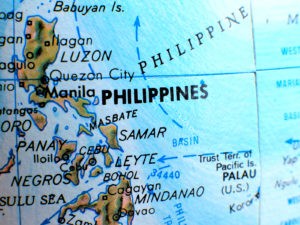
(Bigstockphoto)
The Philippines, once a budding Southeast Asian democracy, now staggers under the erratic rule of foul-mouthed President Rodrigo Duterte. He openly cheers death squads that execute alleged criminals without benefit of a trial, as well as the assassinations of “corrupt” journalists. Duterte honed his populist-godfather persona during 22 years as mayor of Davao City in Mindanao. He brags that he personally killed three people during his campaign against crime there. The Philippines, a nation of 110 million, has declined economically during his presidency and stands accused of numerous human rights abuses.
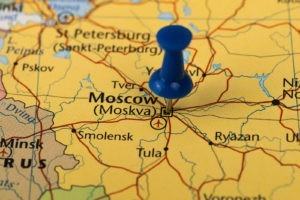
(Bigstockphoto)
Russia enjoyed an all-too-brief blooming of democracy after the fall of the Soviet Union. Economic chaos and nostalgia for the paternalistic security of communism created a popular demand for the return of a “strong hand,” which ex-KGB officer Vladimir Putin was happy to provide. Putin has been either president or prime minister since 1999 and appears determined to become president for life. The economic growth he rode to popularity has eroded, but he seems assured of perpetual reelection — as long as he controls the election process. He specializes in threatening and undermining neighboring countries, sowing misinformation and mischief in the West, and reportedly approving the poisoning of political opponents.
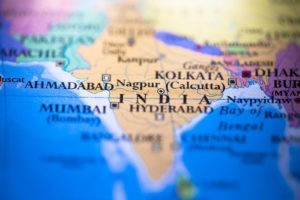
(Bigstockphoto)
India, perhaps most chilling of all, is the world’s largest democracy with nearly 1.4 billion people. Indian secular democracy has endured corruption, multiple wars, emergency rule and massive ethnic and religious violence since independence in 1947. Yet it survives. But its days may be numbered as Prime Minister Narendra Modi trumpets extremist Hindu nationalism to expand his power. Modi denies attempting to oppress and marginalize India’s 200 million Muslims (and other religious minorities, including Christians). Reality tells another story, as Hindutva — Hindu nationalist philosophy — threatens the very existence of modern India. Modi’s economic blunders, meanwhile, have led the nation into a fiscal nosedive. Yet he was reelected in a landslide last year.
What’s the common denominator?
And that brings us to what these nations share in common, besides populist-nationalist demagogues in charge: The demagogues were elected (and sometimes reelected) by the voters. That’s democracy, you say. But for how long? Weary of change, fearful of the “other,” uncertain of the future, millions of citizens in more-or-less democratic nations have chosen “the strong hand,” the loudest voice, the easy way out, the leader who promises to clean house and take care of everything.
We recently observed the 19th anniversary of the 9/11 attacks, which shook the foundations of the free world — but also became a unifying force. That unity is gone.
“Don’t believe easy (and false) answers, whether they come from politicians or the pulpit.”
“In many ways, 9/11 — and the epochal conflagration that followed — feels distant,” writes Ishaan Tahroor in The Washington Post. “In the West, the past decade opened and closed with traumatic economic shocks and recessions. The prevailing view of globalization as an inexorable, benign force (has) dissolved into a seething cauldron of nationalism and populism” — where hostile tribes fight to the death.
We can’t necessarily change the international mood. But we can refuse to become part of the “seething cauldron of nationalism and populism” sabotaging our own democracy — and our own churches.
Don’t believe easy (and false) answers, whether they come from politicians or the pulpit. Don’t submit to fear and hatred of “them.” Don’t blindly follow the shouters. Love one another. Work together for compassionate solutions to divisive issues.
And learn a lesson from Israel of old: Trust the invisible God, not the visible demagogue.
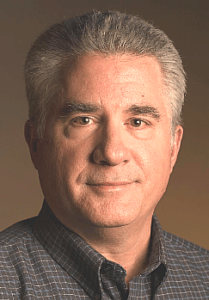 Erich Bridges, a Baptist journalist for more than 40 years, retired in 2016 as global correspondent for the Southern Baptist Convention’s International Mission Board. He lives in Richmond, Va.
Erich Bridges, a Baptist journalist for more than 40 years, retired in 2016 as global correspondent for the Southern Baptist Convention’s International Mission Board. He lives in Richmond, Va.

